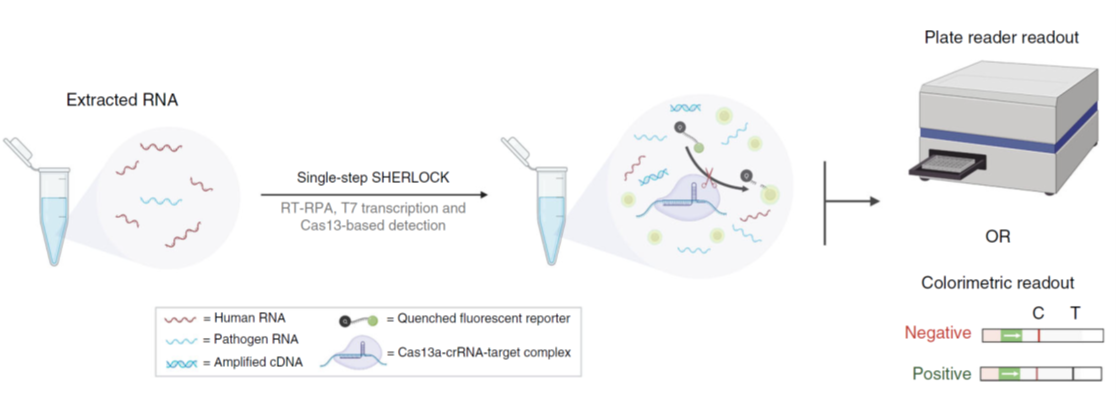2020-11-25 By Quick Biology
COVID-19 cases continue to rise across countries. Researchers at Harvard Medical School and Broad Institute recently has developed new COVID-19 tests called eRPA (enhanced Recombinase Polymerase Amplification) and SHINE (SHERLOCK and HUDSON Integration to Navigate Epidemics), two complementary diagnostic platforms that deliver accurate results with minimal equipment. These two methods can rapidly, sensitively, and specifically, detect SARS-CoV-2 from extraction-free patients samples using either lateral flow strips (LFS) and CRISPR-based fluorescent readouts. Papers are published back to back in recent Nature Communications (Fig.1-2, ref1-2).
Highlights:
- 1. Sensitivity: eRPA has a limit of detection of 2-4 molecules; SHIN has 90% concordance with positive patients’ samples.
- 2. Specificity: No false positives for either eRPA or SHINE in COVID-19 cases. No false positives for either eRPA or SHINE in influenza or other virus-infected patients.
- 3. Speed: ~ 40min for eRPA, ~50min for SHINE.
- 4. Simplicity: no RNA extractions, no thermal cycling.
Both groups now are working on the next version of their technologies to improve ease of use.
Figure 1: Schematic Diagram of eRPA method. (ref1)

Figure 2: Schematic Diagram of SHINE method. (ref2)

Quick Biology’s Rapid and portable COVID-19 test is on the way. Find More at Quick Biology. We wish you a Happy Holiday but make sure to stay safe during this holiday season.
See resource:
- 1. Qian, J. et al. An enhanced isothermal amplification assay for viral detection. Nat. Commun. 1–10 (2020). doi:10.1038/s41467-020-19258-y
- 2. Arizti-sanz, J. et al. Streamlined inactivation, amplification, and Cas13-based detection of SARS-CoV-2. Nat. Commun. (2020). doi:10.1038/s41467-020-19097-x



